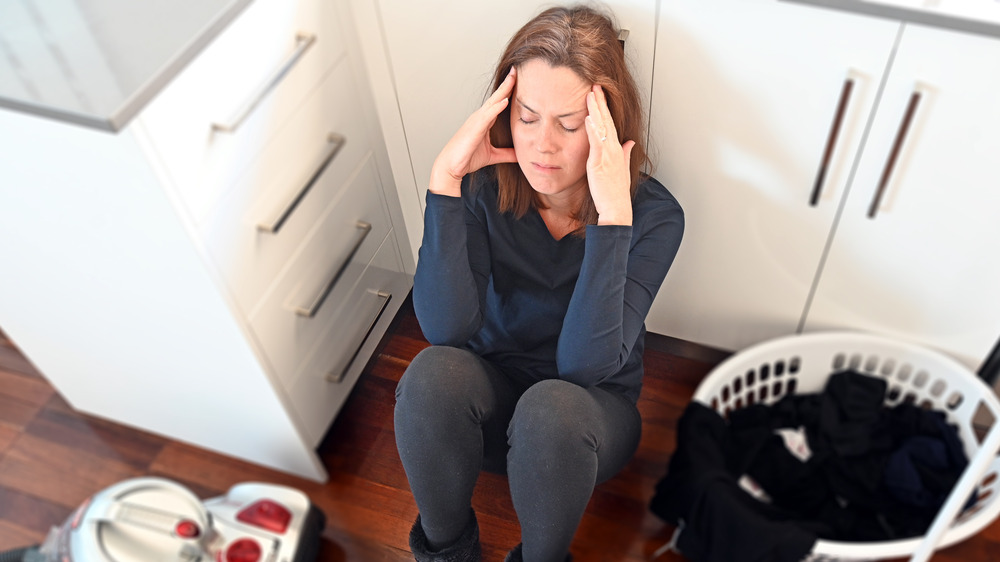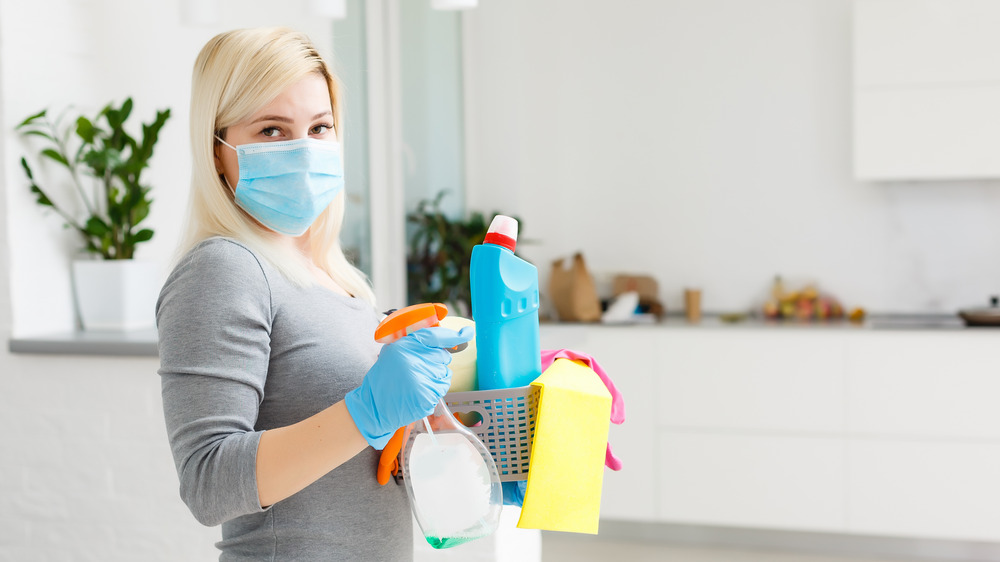Expert Reveals The Signs That Mold Could Be Taking Its Toll On You
Whether you live in a humid area or your bathroom has poor ventilation, different wet conditions can promote the growth of mold at home, according to the CDC. Mold can grow in indoors and outdoors environments and on any surface including leather, paper and wood (via University of Missouri). Depending on how bad your mold situation is and the area where it is, you might need professional help or you may be able to clean it up with different mold removers. Whatever is the case, it's crucial to get rid of mold as soon as detected because it can have detrimental consequences on your health if left untreated.
To understand better how mold affects our health, The List spoke with Michael Rubino, mold expert, president of All American Restoration, and author of The Mold Medic: An Expert's Guide on Mold Removal. Rubino said that, after exposure to mold, people may develop an array of conditions which include chronic fatigue, allergy-like symptoms and muscle pain. These symptoms are also common for other illnesses, so to determine if they are caused by mold, Rubino suggests to get a medical urine test for mycotoxin, which are toxins found in some mold species. According to the CDC, the people at most risk of falling ill after more mold exposure are people with allergies, chronic respiratory diseases and immune suppression, so be extremely careful about this if you have someone at home with this conditions.
Let a professional get rid of mold at your home
Rubino recommends contacting a mold removal expert to perform tests at your home that will determine if there's an infection. "Obtaining the testing for the home is two-fold. One, it confirms that you do have mold. The second is it gives you a plan to take to a professional remediation company to fix the problem," Rubino said. "Without this comprehensive plan, you can't be sure that you're removing all of it."
Additionally, Rubino urges people to do home cleaning weekly or bi-weekly to make sure that there are no allergens and toxins in your living space. He also encourages people to check the humidity of their places and make sure that there is no water intrusion or leakages that could promote mold growth. For this, the CDC recommends using a dehumidifier to keep the humidity levels at your home between 30% and 50%. "Mold is part of our ecosystem and we aren't looking to build a bubble around the home. You'll always have some mold come into the environment," Rubino said. "What you want to do is prevent that mold that naturally enters the environment from being able to grow and colonize by controlling the opportunity for mold to grow."

